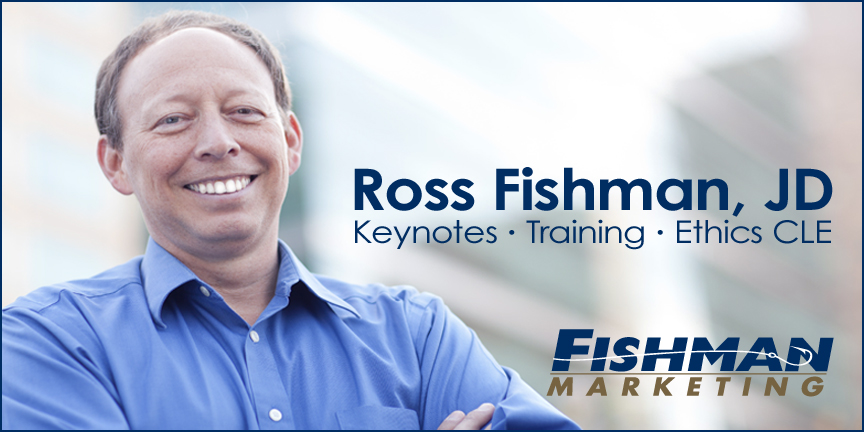Do Consultants Often “Sell from the Podium?”
Tim Corcoran ably summarized the feelings of many consultants and professional speakers with a recent blog post which includes this excerpt:
“Major conferences often have a bias for in-house professionals as presenters. “We must be protected from vendors trying to sell us something,” they say, thereby eliminating input and advice from experts who may have seen 75 implementations of a specific tool or process, in lieu of an in-house practitioner who has deployed the tool only once, in only one organization, and is leveraging the speaking opportunity to find a better paying role.”
Remembering that one time many years ago when a desperate or inexperienced consultant crossed the line and pitched his/her product or service a bit too hard, many conference organizers swing too far in the other direction, admittedly preferring in-house professionals over consultants.
A presumption of guilt is draped over all consultants.
I understand the issue, but in practice in-house marketers typically work more generally; they handle a wider variety of functions. This means that they have less experience than a consultant who specializes in a specific thing.
For example, I recently sat through law firm branding and website-development presentations where a law firm’s in-house marketing director was offering simply awful advice to the rapt crowd.
The problem wasn’t that that wasn’t her true experience, it’s just that she’d only done that thing one time, at her current firm. And at that firm, what she had done had worked. Well done. But she couldn’t possibly understand how lucky she’d gotten, or how badly her strategy would have played at other law or accounting firms. Or the efficiencies or opportunities that she missed along the way, lessons that only come with greater experience and repetition.
I had completed the exact project she was discussing over 100 times for 100 different firms — and you can’t help but learn some things along the way. The nuanced lessons I’d learned over the years would have benefited the audience in their efforts to bring the initiative to their firms. But the conference organizer had a stated preference for in-house marketers and a general distrust of consultants, and my proposal to speak on that same topic had been rejected. And so the audience received her less-valuable (and potentially risky) opinion.
Instead of a bias against consultants, perhaps punish violators?
Make the No-Selling Rule clear in the Call for Presenters (although frankly that should be unnecessary), and punish violators by refusing to invite them to speak at future programs. It’s The Law of the Jungle. In the hundreds of conferences I’ve attended, I’ve only seen a small handful of violations. Most experienced speakers just know better.
Those of us who speak regularly know that selling from the podium is not only a violation of the implicit pact between speaker and audience, but it doesn’t work anyway. Audience members are loathe to buy from a presenter who turned a costly educational session into a tacky infomercial.
Perhaps it’s time to rethink the suspicion directed toward hard-working law firm consultants?
——————–
Looking for a highly rated speaker for your conference, marketing-training, or CLE? Contact Ross Fishman at +1.847.432.3546 or ross@fishmanmarketing.com. Click here to see a video of Ross in action.


 Get updates by email!
Get updates by email!
I’m always pleased when we’re on the same page, Ross. Couple thoughts: In my quote above I was exaggerating a bit to make the point that OF COURSE not ALL in-house practitioners have only tackled this issue once, and OF COURSE not ALL in-house practitioners are exploiting the speaking gig to get their next job. If you stipulate to this, then you must also stipulate that NOT ALL consultants or vendors will exploit their podium time to do an unwanted product demo in the hopes that you might be trapped into buying something you don’t want or need. A professional is a professional, not matter what the logo on the business card. When invited to present as a consultant I have the same objective as when I was in-house: educate the audience, profile practical takeaways based on my experience, and in doing so position myself as an expert. In the past when I presented as an executive of one company or another, I was often so neutral I would mention my competition (!!) or fail to mention my company, much to the chagrin of my team who thought I could be just a bit more selfish. Final point: My remarks were part of an announcement of a new organization that was launched to help work through issues such as this, and create a more collaborative relationship between buyers and sellers, or between clients and service providers or consultants, or whatever label makes you feel good. Join us at http://coalitionpsp.com/.